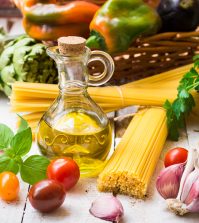- Make It Yourself Lavender Heart-Shaped Bath Bombs!
- 20 Things You Never Knew About “Down There”
- 12 Best Foods For Those Suffering From Arthritis Pain
- 12 Personal Hygiene Mistakes Almost Everyone Makes (Mom Never Told You About #4!)
- 15 Medicinal Plants And Herbs From The Cherokee People
- 12 Mind-Blowing Benefits Of Drinking Coconut Water During Pregnancy
- 12 Outstanding Winter Foods That Won’t Fatten You Up Like A Christmas Turkey
Is There Any Harm In Synthetic Vitamins?

Photo credit: bigstock.com
5. Vitamin B1 – Thiamin
Pork, oatmeal, eggs, yeast, brown rice, flax, cauliflower, kale and asparagus will help your vitamin B1 levels.
6. Vitamin B2 – Riboflavin
For vitamin B2 try cheese, milk, mushrooms, almonds, leafy vegetables, and legumes.
7. Vitamin B3 – Niacin
Besides whole grains try fish, meat, eggs, vegetables, and fruit for vitamin B3.
8. Vitamin B5 – Pantothenic Acid
You’ll find higher doses of vitamin B5 in avocados, broccoli, and whole grains.
9. Vitamin B6 – Pyridoxine, pyridoxamine, pyridoxal
Eggs, milk, beef, avocados, and bananas are just a few foods to increase your vitamin B6.
10. Vitamin B7 – Biotin
Look for this vitamin in leafy greens, peanuts, and egg yolks.
11. Vitamin B9 – Folate or Folic Acid
Add beef, eggs nuts, seeds, and legumes to raise your vitamin B9 levels.
READ MORE: Are Curcumin Supplements As Beneficial As Whole Turmeric? Video
12. Vitamin B12 – Cyanocobalamin or methylcobalamin
The best ways to increase your B12 levels naturally is to start (or carry on) adding seafood, milk, and meat to your regular diet.
References:































